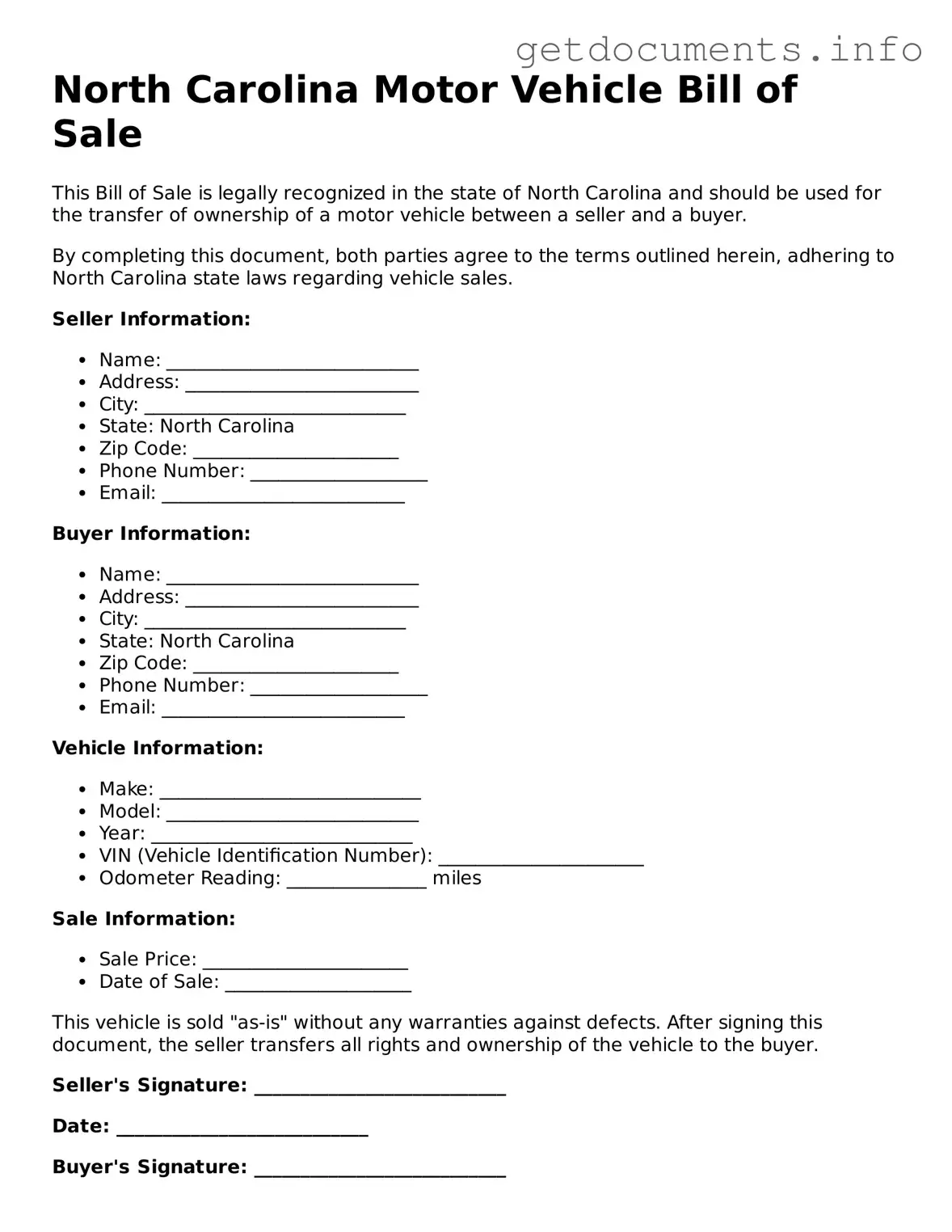Free Motor Vehicle Bill of Sale Template for North Carolina
The North Carolina Motor Vehicle Bill of Sale form is a legal document used to record the sale of a vehicle between a buyer and a seller. This form provides essential details about the transaction, including the vehicle's description and the sale price. To ensure a smooth transfer of ownership, complete the form accurately by clicking the button below.
Access Motor Vehicle Bill of Sale Editor

Free Motor Vehicle Bill of Sale Template for North Carolina
Access Motor Vehicle Bill of Sale Editor
Got places to be? Complete the form fast
Fill out Motor Vehicle Bill of Sale online and avoid printing or scanning.
Access Motor Vehicle Bill of Sale Editor
or
⇩ PDF File
